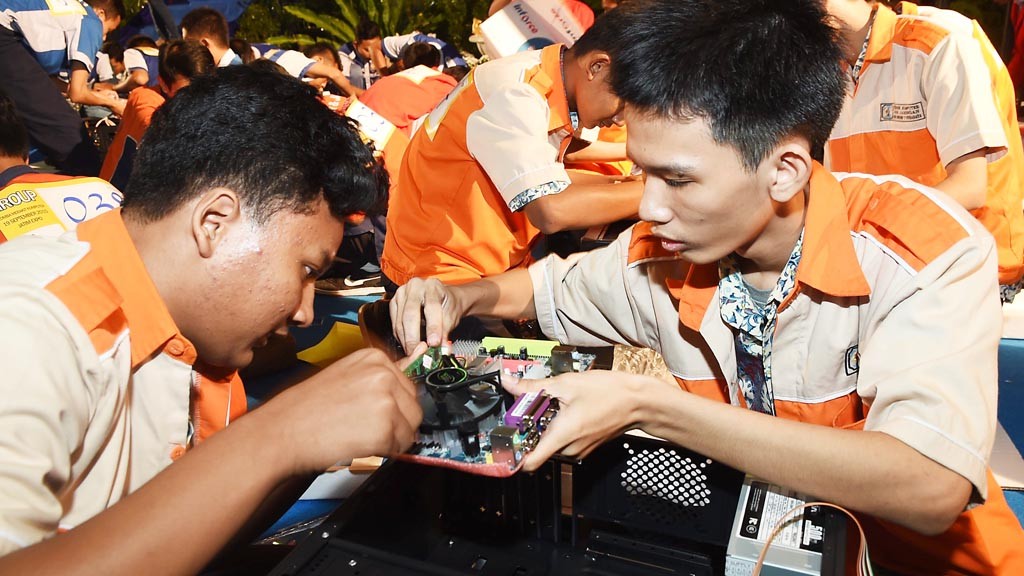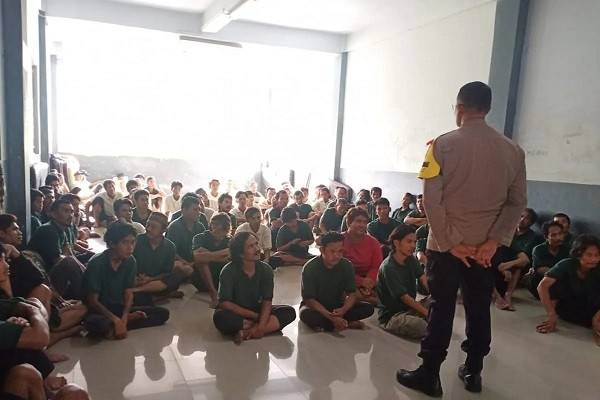Popular Reads
Top Results
Can't find what you're looking for?
View all search resultsPopular Reads
Top Results
Can't find what you're looking for?
View all search resultsBig role for vocational schools
For many years, vocational school (SMK) students have endured a stigma as troublemakers. They are also often associated with street brawls and other cases of juvenile delinquency; the public tends to look down on them and vocational schools in general compared to students of private or state high schools.
Change text size
Gift Premium Articles
to Anyone
F
or many years, vocational school (SMK) students have endured a stigma as troublemakers, including in the recent mass protests against a revision of the Corruption Eradication Commission (KPK) Law. They are also often associated with street brawls and other cases of juvenile delinquency; the public tends to look down on them and vocational schools in general compared to students of private or state high schools.
Statistics seem to confirm that a bright future eludes vocational school students, who have topped the unemployment rate for the last three years with 8.63 percent this year, 8.92 percent in 2018 and 9.27 percent in 2017.
The apparent gloomy state of vocational school students ignores the decisive role that vocational education will play as the country is anticipating a big harvest of its demographic bonus between 2020 and 2035. Failure to improve vocational education, however, will turn this dividend of youth into a disaster, thwarting the nation’s bid to join the ranks of high-income countries in 2045 and perhaps its political stability.
It is encouraging, therefore, to hear of the private sector’s intention to help the government shape the curriculum of vocational schools. Certain industries may have already lent a helping hand without much fanfare, with some going so far as founding their own vocational schools to fulfill their specific need for skilled workers or opening internship opportunities for vocational school students.
Education and Culture Minister Muhadjir Effendy said on Monday that the government had been cooperating with the Indonesian Chamber of Commerce and Industry (Kadin) in a bid to raise the skills and standards of vocational school graduates. As a stakeholder in vocational education, industries will guide the curriculum to follow market demand and provide trainers who will introduce students to the real employment world. Students will also spend 60 to 70 percent of their learning as interns so that when they graduate, the market can easily absorb them.
The participation of the private sector in vocational education will not only benefit the companies, as they can secure their own demand for skilled labor but also Indonesia’s economy. The more competent graduates vocational schools produce, the faster the country can develop its manufacturing sector and end its dependence on exports.
The public-private initiative in vocational education is in line with the government’s human capital development program, which will be among its top priorities for the next five years. Muhadjir said the government would revitalize 5,000 out of 14,000 vocational schools by the end of 2024.
The revitalization program may be a bit late, but it is better than nothing. Without it, Indonesia may not be able to keep up with its Southeast Asian neighbors, like Vietnam and Thailand, who have been moving fast in their push for industrialization.
The remaining challenge for the government now is to extend the length of study of most vocational school students from three to four years in a bid to produce ready-for-use graduates. The next daunting test is to convince parents and students to see vocational schools as a reasonable — if not the right — choice.










